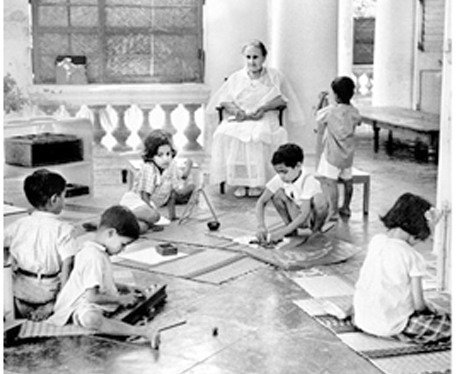“Here is the aim of the truly new education; first of all to discover the child and effect his liberation […]”
(M. Montessori, The Secret of Childhood, p. 106).

“Here is the aim of the truly new education; first of all to discover the child and effect his liberation […]”
(M. Montessori, The Secret of Childhood, p. 106).
For Dr. Maria Montessori, education is an aid to life. For 50 years, guided by her scientific rigor, her visionary and deeply human spirit, Maria Montessori observed children. From her observations and research, she developed a true philosophy of education and deduced the essential principles for the optimal development of the child. Today, nearly 100 years later, research in neuroscience is able to validate her observations, which, with the benefit of hindsight, are impressively accurate.

« The child is not a miniature adult. He is, first and foremost, the owner of a personal life which has specific characteristics and purpose”
(M. Montessori, Education and Peace. p. 37).
For Maria Montessori, the child builds the adult he or she will become and is a person in his or her own right. The principles of her pedagogy are based on this revolutionary observation. Here are the fundamentals :
The application of these principles in a classroom relies on the teacher and represents a relentless commitment. This adult is not only a transmitter of knowledge, but also a teacher who takes care of the development of the child’s personality in its entirety, physically, socially and spiritually.
They aim at not hindering the natural development of the child and, therefore, must know how to self-examine and self-question.
